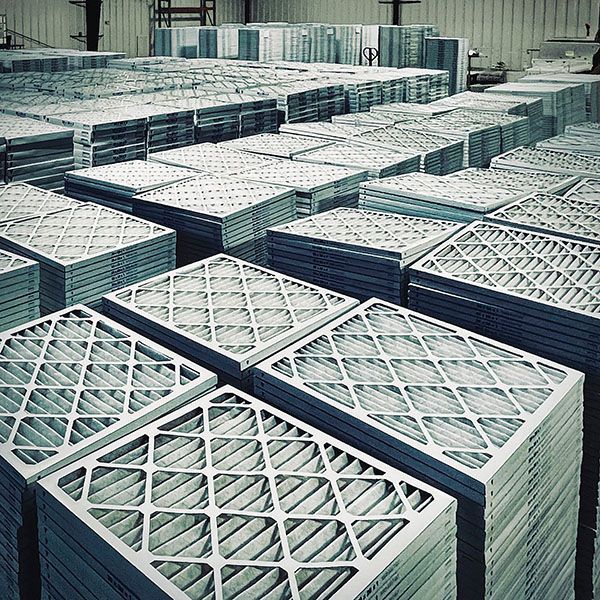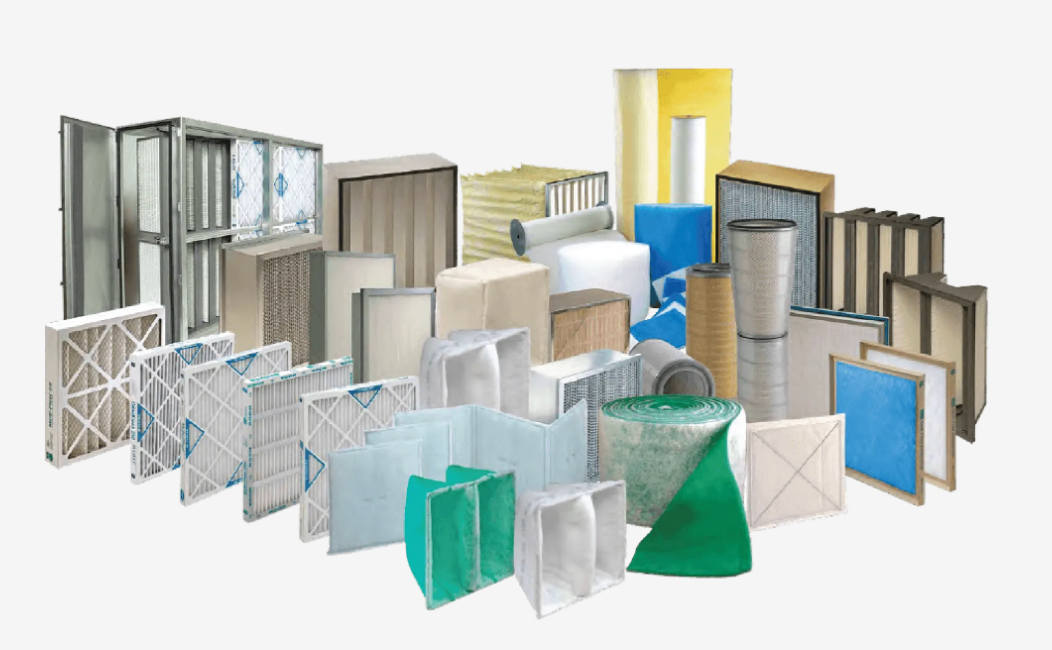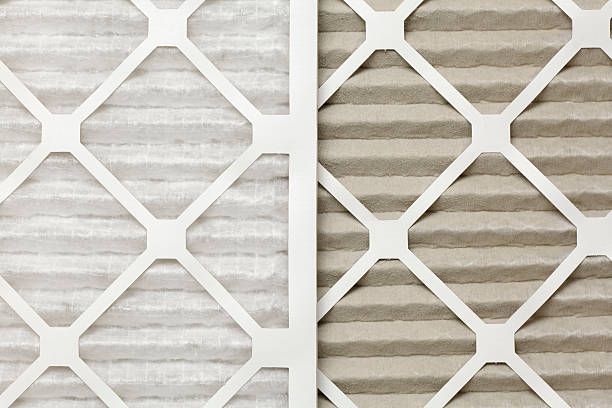Ryan Berkley, CAFS, is president of B&B Filters. As a Certified Air Filter Specialist by the National Air Filtration Association (NAFA), Ryan has completed extensive training and testing in the field of air filtration and has a thorough understanding of air filtration principles, technologies and practices. This high level of filter expertise allows Ryan to provide school districts, universities, hospitals, manufacturers, laboratories, research facilities and others customized, quality solutions to their air filtration needs. Call or text Ryan at: 423.598.9930

15 Air Filter Questions Answered: MERV 13 Air Filters vs. HEPA Air Filters
By Ryan Berkley, CAFS
Confused over the differences between MERV 13 air filters and HEPA air filters? Not sure which one you should buy? In this blog post, I’ll answer the most common questions about these air filtration systems.
Air Filter Maintenance and Replacement
When it comes to maintenance and replacement, understanding the requirements can greatly impact your choice between MERV 13 air filters and HEPA air filters.
MERV 13 air filters generally require less frequent replacement, about every 3-6 months, making them a more cost-effective option in terms of upkeep. Their construction and size are well-suited for easy installation in most HVAC systems.
HEPA air filters have more stringent maintenance needs. These filters often need to be replaced more frequently, approximately every 6-12 months, depending on usage and particulate matter in the environment. The increased efficiency in capturing tiny particles, viruses, and bacteria means they may clog more quickly, necessitating regular checks to maintain optimal performance.
Air Filter Cost
Another factor to consider is the cost associated with each type of filter.
MERV 13 filters are generally less expensive, both in terms of purchase price and long-term maintenance. On the other hand, HEPA air filters involve higher initial costs and replacement expenses, partly due to their advanced construction and material designed for superior air filtration.
Weighing these considerations will help determine the most suitable option for your specific air quality needs.
Making an Informed Air Filter Choice
Understanding the unique benefits and drawbacks of each of these two filters will help you make an informed choice for optimal indoor air quality and respiratory health.
As one of the air filter suppliers based in East Tennessee serving school districts, universities, manufacturing facilities, hospitals, and more in Johnson City, Bristol, Knoxville, Atlanta, and elsewhere, here’s how I’d answer a 15-part FAQ between these two choices.
Frequently Asked Air Filter Questions
-
What’s the main difference between a MERV 13 air filter and a HEPA filter?
MERV 13 air filters effectively capture larger particles like dust, mold spores, and allergens, typically removing more than 50% of particles down to 0.3 microns. High-efficiency MERV 13 air filters adhere to specific filtration standards and have a good efficiency rating, but they may not catch the smallest particulate matter. They capture at least 99.97% of particles down to 0.3 microns, including viruses and bacteria even smaller than that.
-
How do MERV 13 filters and HEPA air filters differ in terms of efficiency?
HEPA air filters are efficient than MERV 13 filters, as they can capture a higher percentage of particles, including smaller ones, leading to cleaner air. That’s why they fall under the cleanroom air filters, laboratory air filters, and hospital air filters categories.
-
In what kinds of applications are MERV 13 air filters commonly used?
MERV 13 filters are commonly used in residential HVAC systems, helping to improve indoor air quality by capturing dust, pollen, and other larger particles. They are also popular as MERV 13 filters for schools and universities.
-
What are the typical applications for HEPA air filters?
HEPA air filters are commonly used in environments requiring higher levels of filtration, such as hospitals, laboratories, and cleanrooms where capturing smaller particles and allergens is crucial.
-
How often should MERV 13 air filters and HEPA air filters be replaced?
MERV 13 filters should typically be replaced every two to three months, while HEPA air filters can last longer but should be replaced at least annually for optimal system energy efficiency.
-
Can MERV 13 air filters and HEPA air filters be cleaned instead of replaced?
MERV 13 filters are not designed to be cleaned and should be replaced when dirty. HEPA air filters may be cleanable in some cases, but it’s generally recommended to replace them for better filtration performance.
-
Are MERV 13 air filters more cost-effective than HEPA air filters?
MERV 13 filters are generally more cost-effective than HEPA air filters in terms of upfront cost, but the long-term efficiency and performance of HEPA air filters may justify the higher initial investment.
-
What are the main advantages of using MERV 13 air filters over HEPA air filters?
MERV 13 filters are more affordable and widely available compared to HEPA air filters, making them a practical choice for improving indoor air quality in residential settings and commercial air filters applications..
-
Why are HEPA air filters preferred in environments with strict air quality requirements?
HEPA air filters are preferred in environments with strict air quality requirements due to their high efficiency in capturing ultrafine particles, bacteria, and viruses, providing superior air quality.
-
Do MERV 13 air filters and HEPA air filters require special considerations for installation?
Both MERV 13 and HEPA air filters require proper installation to ensure optimal performance, including checking compatibility with HVAC systems and following manufacturer guidelines.
-
How do MERV 13 air filters and HEPA air filters contribute to overall indoor air quality?
Both MERV 13 and HEPA air filters help improve indoor air quality by capturing particles that can contribute to allergies, asthma, and respiratory issues. This, in turn, creates a healthier living or working environment.
-
Do MERV 13 air filters and HEPA air filters remove odors from indoor air?
While MERV 13 and HEPA air filters can capture some odors, their primary function is to remove particles from the air. For odor control, additional air purifying methods may be needed.
-
Are MERV 13 air filters and HEPA air filters easy to find and purchase?
MERV 13 air filters can be ordered online from the B&B Filters website, as can HEPA air filters. However, HEPA air filters may be more specialized, so it’s best to first consult with an air filtration expert who specializes in air filtration products.
-
What factors should be considered when choosing between a MERV 13 air filter and a HEPA filter?
Factors to consider include the specific air quality needs of the environment, the size of particles to be captured, budget constraints, and the frequency of filter replacement to make an informed decision. It’s recommended you consult with an air filtration expert who specializes in air filtration products.
-
Can MERV 13 filters and HEPA air filters be used interchangeably?
MERV 13 air filters and HEPA air filters have different efficiency levels and are designed for specific purposes, so they’re not interchangeable. It’s important to choose the right filter based on the requirements of the environment. Follow the recommendation of an air filtration expert.
If you have questions about your air filtration needs, email info@bnbfilters.com or call (423)-775-2932.

Similar Posts

Elevating industry standards with tailored air and fluid filtration solutions since 1992, B&B Filters delivers excellence across the US.








